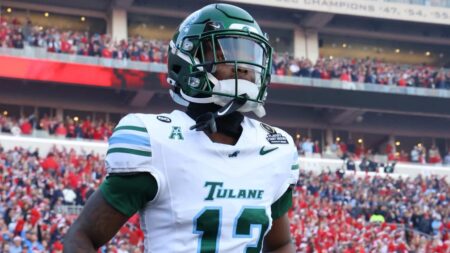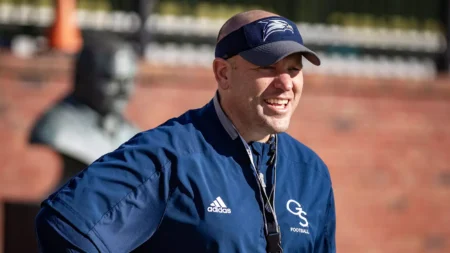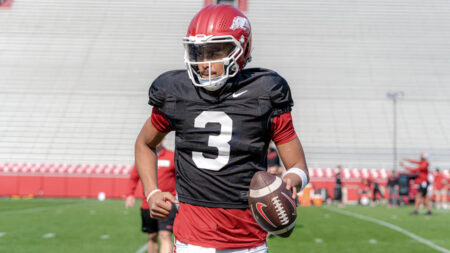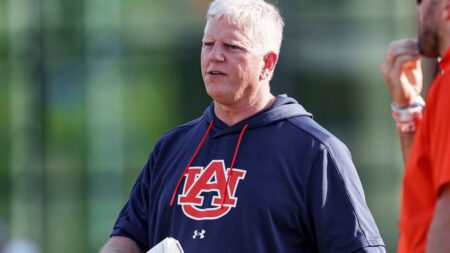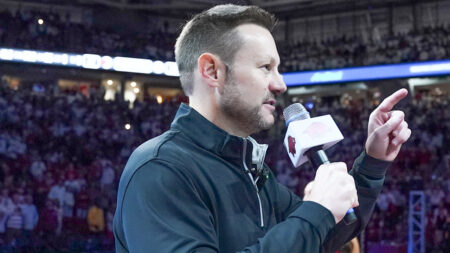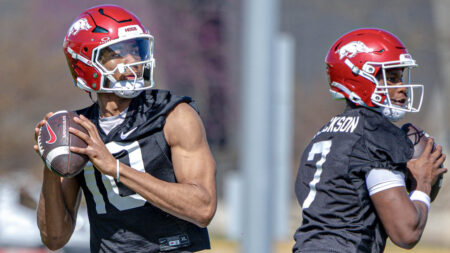Hogs Football
Is Hunter Yurachek failing Arkansas football? Could Houston Nutt help?
With Arkansas 2-2 and faltering in critical moments, some argue Yurachek must be held accountable and Houston Nutt is suggested
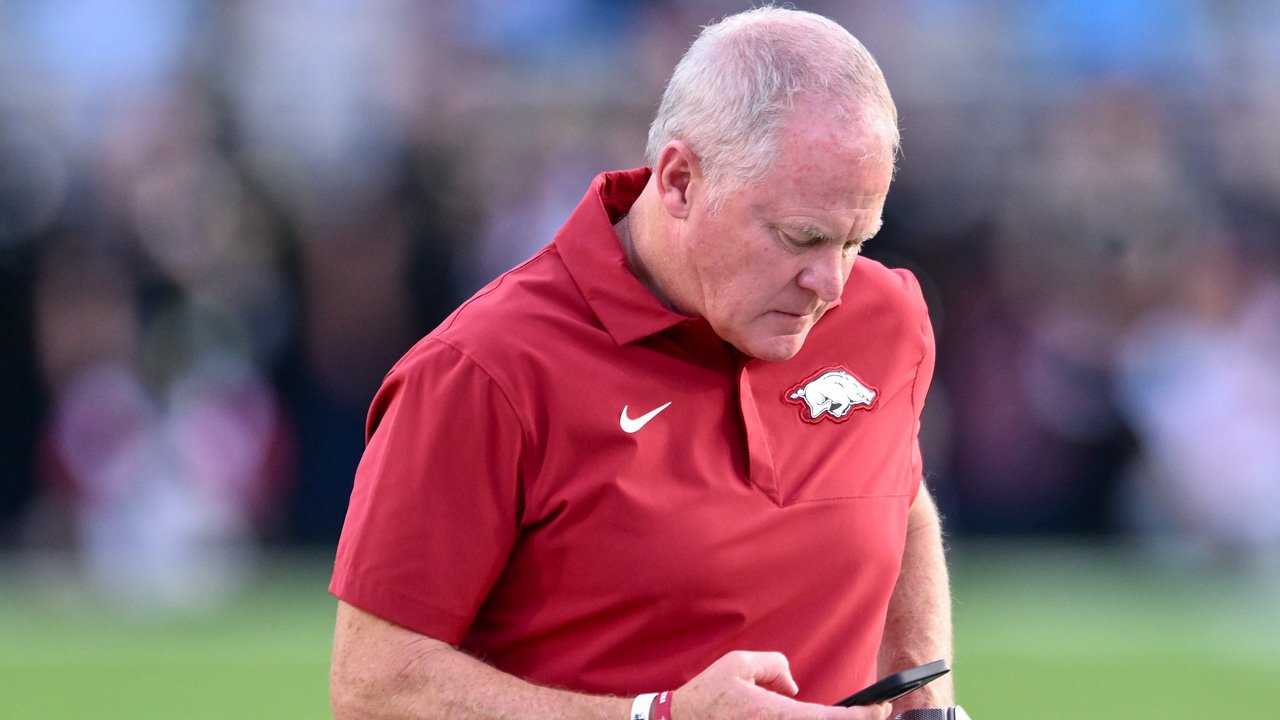
FAYETTEVILLE, Ark. — As Arkansas makes its way through a fourth game of the 2025 season, the record is 2-2, with SEC play already exposing familiar weaknesses.
Under Razorbacks coach Sam Pittman, the team has succumbed to late-game collapses (Memphis, Ole Miss), issues in execution, and defensive lapses.
The question increasingly being asked is simply if Hunter Yurachek, the athletic director, is responsible for the decline?
If so, is bringing back former Razorbacks coach Houston Nutt an option to raise money, restore donor confidence, and perhaps run the athletic department more effectively?
Struggles beyond the scoreboard
The struggles aren’t isolated to one bad call or one injury.
Arkansas has now lost two straight in difficult fashion, with one-score games slipping away. Pittman’s tenure has featured only one season of eight or more wins in five full seasons.
In the recent loss to Memphis, Arkansas led 28-17 at halftime but managed just three points in the second half.
The offense, which showed promise early, couldn’t sustain momentum. Defensive inconsistency has also been a recurring theme. The razor-thin margins in SEC games magnify each weakness.
Hunter Yurachek’s role and limits
As athletic director since 2017, Yurachek has overseen successes in non-football sports and has been praised for fundraising, facilities upgrades, and academic performance.
Yet in football, the revenue king at Arkansas, Yurachek’s influence shows both what he has done and what he hasn’t.
He recently admitted that a gap in resources is hurting Arkansas’s competitiveness in the SEC.
That suggests awareness of problems, but raises the question of why haven’t more aggressive actions been taken?
Any AD has limits in hiring staff, approving budgets, guiding donor efforts but game-day performance falls more on coaches. Pittman is directly accountable for play-calling, adjustments, recruiting, and discipline.
Still, investors, fans, media often expect the AD to set the tone and direction.
Why people calling for change, for Nutt
Nutt, who coached Arkansas from 1998-2007, remains a figure with strong name recognition, deep ties to the fan base, and a track record of raising expectations.
Under Nutt, Arkansas competed strongly in the SEC, and he remains a voice many respect. Supporters argue that having someone like Nutt in a broader leadership role, perhaps overseeing fund-raising, alumni engagement, or even athletic operations, could help bridge the gap between aspiration and resources.
The case for Nutt:
-
Fund raising and donor confidence: Nutt is one of the few coaches in recent Razorback history who energized large portions of the fanbase. Having him involved, even off the field, could help unlock more contributions.
-
Experience in SEC battles: His tenure included signature wins and deep facing of the region’s power structure; that institutional memory could be helpful in navigating recruiting and expectations.
-
Bridge between tradition and modern challenges: The Razorbacks need not just athletic upgrades, but cultural ones: stronger recruiting pipelines, decisiveness in close games, and better coaching/staff support. Nutt is a symbol of earlier periods that fans remember more fondly.
Risks and alternatives
Bringing Nutt in is not without risk. He is no longer coaching at the highest level; the game has changed (transfer portal, NIL, recruiting).
Putting him in charge of fundraising and departmental oversight might overlap awkwardly with Yurachek’s existing authority.
Also, expectations would rise rapidly, and failure in a renewed setup could backfire.
Alternatives include finding a new head coach who combines modern recruiting savvy and in-game adaptability, or strengthening Yurachek’s support structure plus hiring better assistants, investing more in analytics, increasing NIL funding, etc.
Verdict: Responsibility and potential path forward
Is Yurachek responsible for the Razorbacks’ mess? Partly yes.
He bears responsibility for the broader structure: resource allocation, hiring priorities, coaching oversight.
But the failures also stem from coaching, player execution, depth, and institutional adaptation.
Given current struggles with two straight losses, narrow defeats, failure to finish games it seems clear incremental change may not be enough.
The UA might reasonably consider bringing in Nutt in some capacity to help steer a recovery. Not necessarily as head coach, but maybe as a fundraising and leadership figure who can rally donors, alumni, and the fan base, complementing Yurachek’s work, or maybe even replacing aspects of the athletic department structure.
Key takeaways
-
Hunter Yurachek holds legitimate responsibility for resource gaps and structural issues hurting Arkansas football’s competitiveness.
-
Sam Pittman’s coaching flaws—especially in tight, high-pressure games—compound the problems and demand accountability.
-
Bringing in Houston Nutt as a leader to run or co-run key parts of fundraising, operations, or donor relations could help accelerate fixes—but comes with risk and must be clearly defined.


